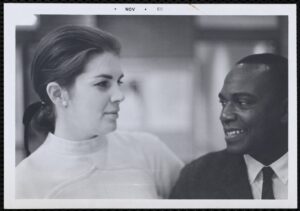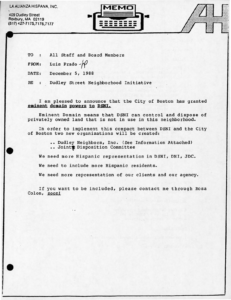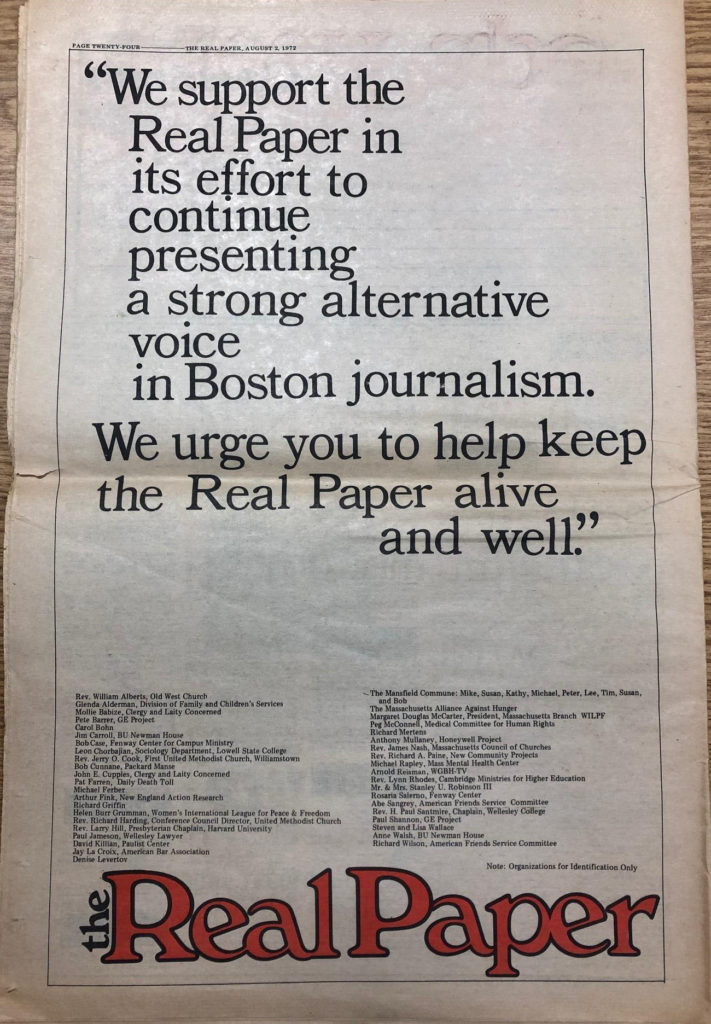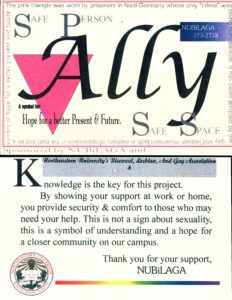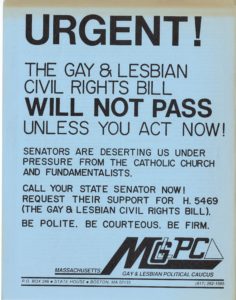Women’s History Month in the Archive: Remembering Phyllis Ryan
This Women’s History Month we’re proud to highlight the collection of Boston-based activist Phyllis Ryan. The Phyllis M. Ryan papers at the Northeastern University Library Archives and Special Collections trace the arc Ryan’s career trajectory through the 1960s to late ’80s in Boston, documenting her role as a communicator, facilitator, and radical activist. However, Ryan is not the only figure present in her own collection. While the papers cover her work in Boston’s civil rights scene, combating institutional and political discrimination on the basis of race, ability, class, and faith, Ryan’s name and image appear alongside those of other public figures of the time.
A large portion of the papers are composed of newspaper clippings from and press releases to a wide range of publications. Many of Ryan’s most effective roles were operating as a go-between for progressive candidates and causes which she would relate to the press. The nature of Ryan’s work frequently relegated her to a voluntary role of background character in the many political narratives she shaped, promoting movements and voices without promoting herself, creating access and elevating the voices of the marginalized without taking personal advantage.
Phyllis Ryan’s work in political activism began in school clubs while she attended Northeastern University, supporting local progressive campaigns, writing for the Northeastern News, and promoting collegiate activism on campus. After obtaining her degree, Ryan’s first major political successes began with raising awareness of housing discrimination in the Boston area with the Fair Housing Federation of Greater Boston. Ryan continued on to work in advisement and press representation for the Boston Congress of Racial Equality (CORE), and was particularly active in the movement for racial integration of the Boston Public Schools. In response to the church bombings in Birmingham, Ala., during the 1960s, Ryan organized marches, sit ins, and a rally of 30,000 people on the Boston Common to raise awareness and solidarity. Significantly, she also organized Dr. Martin Luther King’s visit to Boston in April of 1965, working with local religious leaders to spend hours briefing Dr. King on the difficulties facing the Boston communities, and writing the speeches that he would give throughout his stay.
Ryan’s final political act of her long public career was a successful unification of Newton’s local politicians to create wheelchair access for a nearby public lake. This act of path-making, public service, and barrier lifting is beautifully characteristic of Ryan’s public career.
Ryan’s careful voice and clear mind were operating influentially behind the scenes of so many political and social advances in Massachusetts, from combating right-wing extremist political campaigns to protesting the misuse of urban renewal funds, suing the New Haven (Conn.) Police Department for illegal wiretapping of politically active citizens’ homes, and advancing reform at Walpole State Prison. We invite you to look further at the life and work of an extraordinary public servant and iconic piece of Boston’s history of activism. While our reading room is currently closed, you can view the digitized collection online in the Digital Repository Service, and we hope to see you in person once the archive reopens!
